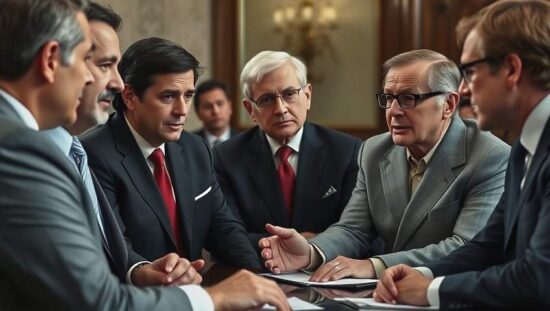Leading figures within the Christian Democratic Union (CDU) and Christian Social Union (CSU) are calling for a reassessment of Germany’s climate protection policies. Michael Kretschmer, Minister President of Saxony and a CDU member, has suggested a more measured discussion regarding the feasibility and target date for achieving climate neutrality. He voiced concerns that a rigid commitment to the current 2045 deadline could create significant challenges across pivotal sectors, including transportation, agriculture, housing and energy production.
Kretschmer questioned whether complete climate neutrality is an absolute necessity, proposing that alternative targets of 90%, 80%, or a later target year of 2050 might be considered. He criticized the current approach as overly dogmatic, emphasizing the need for open and pragmatic debate.
This call for reassessment follows a 2021 ruling by the Federal Constitutional Court, which derived a legal obligation to achieve climate neutrality from Article 20a of the German Basic Law. The court established a carbon budget aligned with the Paris Agreement, implying that only minimal CO2 emissions would be permissible after 2045. Simultaneously, recent reports from international legal bodies reaffirm the binding nature of the 1.5-degree Celsius target under international law.
Martin Huber, General Secretary of the CSU, echoed the sentiment, advocating for “reasonable climate protection” that preserves economic strength and societal well-being. He cautioned against Germany becoming a “climate-neutral green economic ruin” and stressed the importance of balancing ecological and economic considerations. Huber specifically called for a reconsideration of the European Union’s proposed CO2 fleet emission standards for new vehicles, frequently referred to as the “internal combustion engine ban” scheduled to take effect in 2035.
CDU Member of Parliament and Chairman of the CDU/CSU parliamentary group’s Environment Working Group, Mark Helfrich, expressed apprehensions about production shifting from Germany due to stringent climate protection measures. He recalled a previous consensus prioritizing the maintenance of German economic competitiveness during the energy transition.
While Andreas Jung, a Vice-Chairman of the CDU, reaffirmed his party’s commitment to the existing climate neutrality target of 2045, as outlined in the party’s foundational program, election manifesto and coalition agreement with the Social Democratic Party (SPD), he acknowledged the need for adjustments to current climate protection policies. Jung, who also serves as his parliamentary group’s climate policy spokesperson, stated that the current approach has, at times, been overly restrictive or misdirected, requiring correction to incorporate genuine pragmatism, increased market-based solutions and clear, flexible frameworks.





